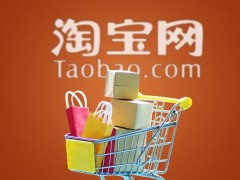What are the differences between the three operating modes of b2c?
1、瞄准用户需求
在品类发展上,扩大品类范围是一个方面,随着消费者对情感价值和文化价值的需求增长,传统电商的标品已经难以满足一些消费者的需求,提供非标品成为趋势,如食品、美妆、生鲜、本地生活服务等。当然,在这个方面垂直型电商的优势更大。
2、精细化运营
在运营趋势上,精细化运营、大数据分析、O2O是大势所趋,尤其是结合大数据的C2B定制。天猫、京东大数据都已经在各类业务上发挥了重大价值,如基于消费者多维度画像分析对消费行为深度挖掘以开展精准营销、销量预测、C2B定制、仓库调拨、库房自动补货、客服智能应答等各领域。
3、提供差异服务
从消费者体验角度出发,“小而精”的特点会强化购物体验,满足一些差异化需求,如对于非标准化的、专业性较高的细分市场,消费者需要有细分平台为其提供有特色的和专业化的服务。
Professional answer
1. Targeting user needs
In terms of category development, expanding the scope of categories is one aspect. As consumers' demand for emotional value and cultural value grows, the standard products of traditional e-commerce have been unable to meet the needs of some consumers, and providing non-standard products has become a trend, such as food, beauty, fresh food, local life services, etc. Of course, vertical e-commerce has a greater advantage in this regard.
2. Refined operation
In terms of operating trends, refined operation, big data analysis, and O2O are the general trend, especially C2B customization combined with big data. Tmall and JD big data have played a significant role in various businesses, such as deep mining of consumer behavior based on multi-dimensional consumer portrait analysis to carry out precision marketing, sales forecasting, C2B customization, warehouse allocation, automatic warehouse replenishment, customer service intelligent response and other fields.
3. Provide differentiated services
From the perspective of consumer experience, the “small but fine” feature will enhance the shopping experience and meet some differentiated needs. For example, for non-standardized and highly professional market segments, consumers need a segmented platform to provide them with distinctive and professional services.
Similar Q&A
recommend Where to sell the 1985 one-cent coin?
E-c News Continuously pushing e-commerce knowledge to you








Latest Q&A More
-
Do I need a trademark to open a franchise store on Pinduoduo to sell books?
#Pinduoduo#
-
How to withdraw from a Pinduoduo store
#Pinduoduo#
-
How to withdraw from Pinduoduo merchants
#Pinduoduo#
-
How to pay fees when closing a Pinduoduo store
#Pinduoduo#
-
How to withdraw from Pinduoduo
#Pinduoduo#
-
Which store on Pinduoduo is authentic?
#Pinduoduo#
-
Which stores on Pinduoduo can buy genuine products?
#Pinduoduo#
-
How to check the store under Pinduoduo
#Pinduoduo#
-
How to receive Pinduoduo online game products
#Pinduoduo#
-
How to sell the electronic version on Pinduoduo
#Pinduoduo#
E-c News 2026-02-27 22:56:06

- African netizens use China Africa cross-border e-commerce platform for online shopping
- how is the new seller of cross-border e-commerce doing?
- how can cross-border e-commerce Amazon sell on Amazon platform without goods?
- Amazon store opening process and cost analysis!
- Amazon plans to expand its pharmacy business on a large scale and will add same day delivery service
